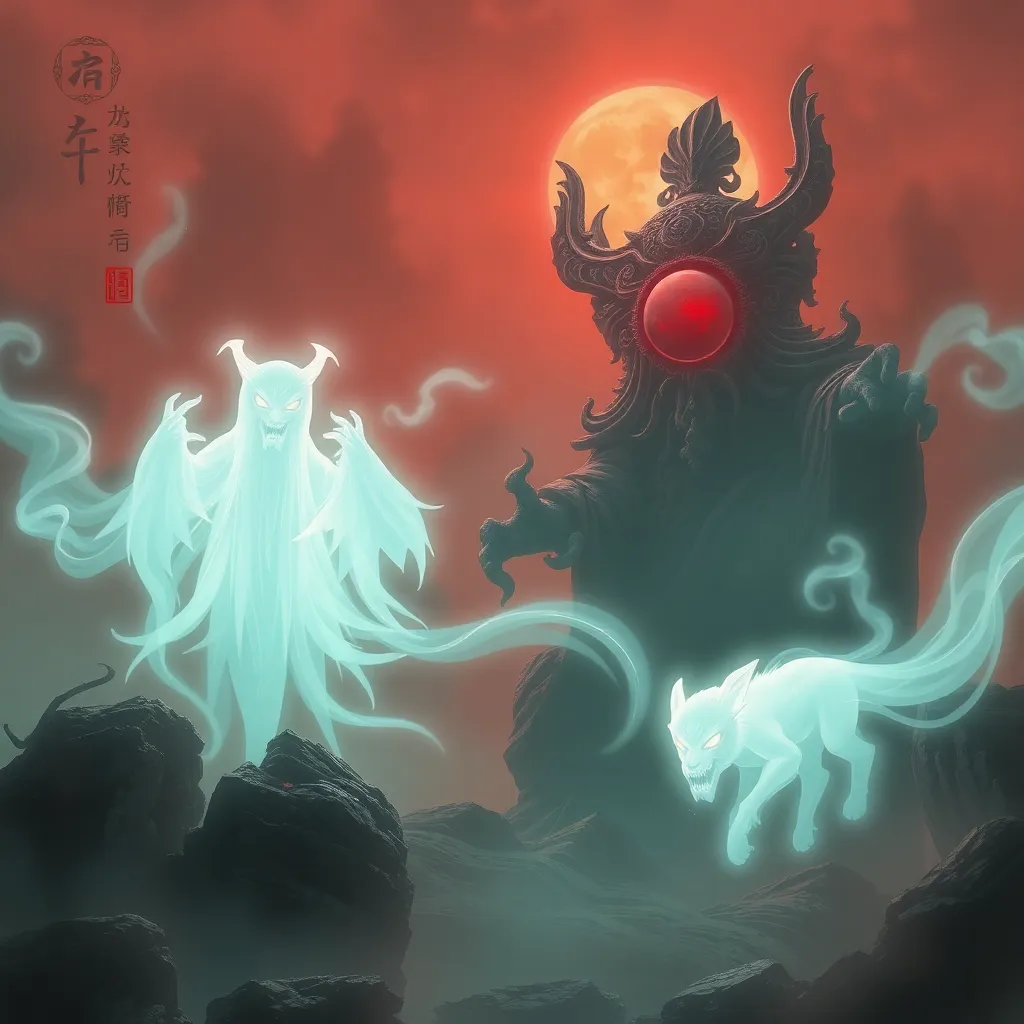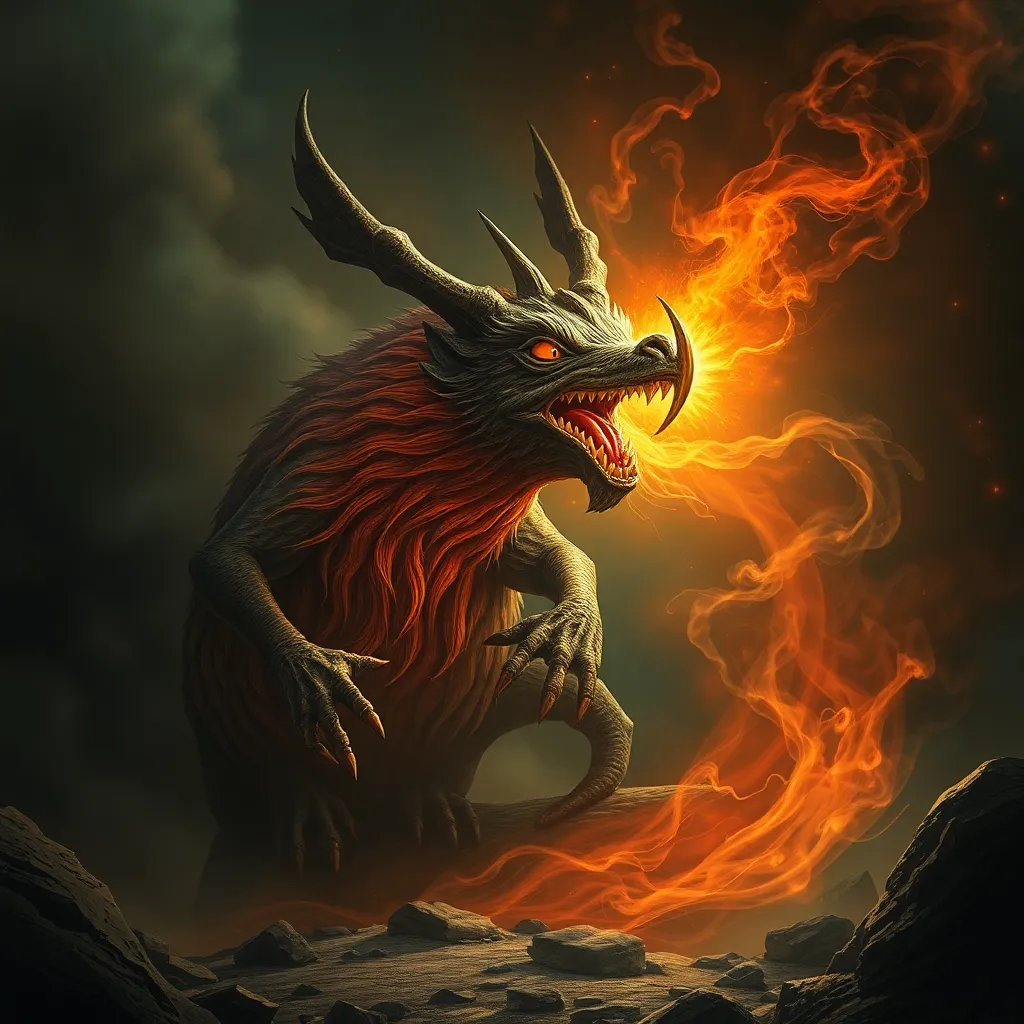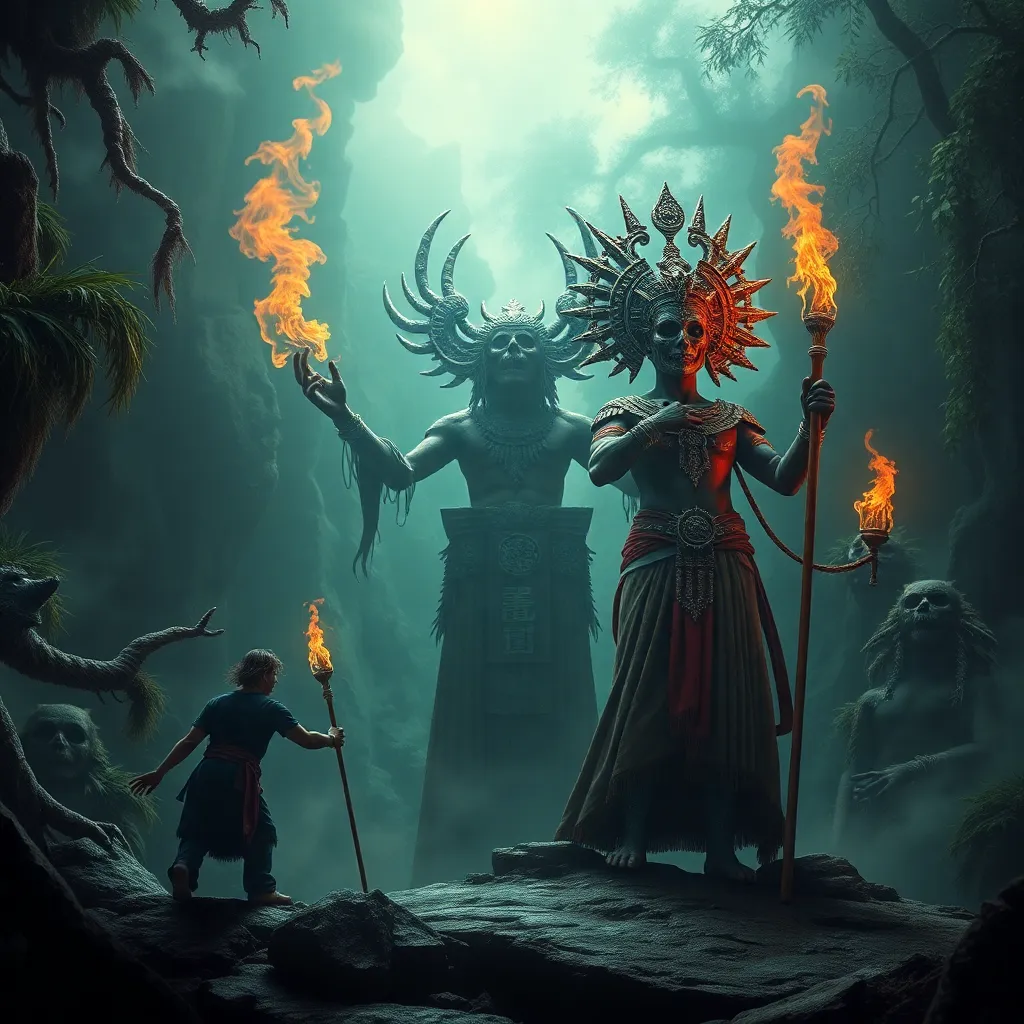Ghostly Guardians: The Role of Ghosts in Chinese Mythology
I. Introduction
In Chinese culture, the concept of ghosts holds a profound significance that permeates various aspects of life, spirituality, and societal norms. Ghosts are not merely viewed as harbingers of fear; instead, they are often seen as guardians or protectors of the living, deeply intertwined with the ancestral veneration that is a cornerstone of Chinese belief systems. This article delves into the multifaceted role of ghosts in Chinese mythology, particularly focusing on their protective aspects and the cultural implications of these beliefs.
II. Historical Context of Ghost Beliefs in China
A. Ancient traditions and beliefs surrounding the afterlife
Historically, ancient Chinese civilizations held a strong belief in an afterlife, where the spirits of the deceased continued to exist and influence the living. The notions of heaven, hell, and the spirit world formed a complex tapestry of beliefs that guided rituals and everyday life.
B. The evolution of ghost mythology through different dynasties
Throughout various dynasties, such as the Shang, Zhou, Han, and Ming, the conception of ghosts evolved significantly. Early beliefs emphasized the importance of ancestral spirits, while later dynasties began to incorporate more diverse interpretations of ghostly entities, including vengeful spirits and benevolent protectors. This evolution reflected the changing cultural, political, and philosophical landscapes of China.
III. Types of Ghosts in Chinese Mythology
A. Ancestral spirits and their protective roles
In Chinese mythology, ancestral spirits are revered as protectors of their descendants. Families often engage in rituals to honor these spirits, seeking their blessings and guidance. These ancestral spirits are thought to watch over their living relatives, providing protection and wisdom.
B. Vengeful spirits and their impact on the living
Contrasting with ancestral spirits are the vengeful spirits, often characterized by their anger and desire for retribution. These spirits typically arise from individuals who suffered injustice or wrongful death. They embody the importance of moral conduct and serve as reminders of the consequences of one’s actions.
IV. Ghostly Guardians in Folklore
A. Legends of benevolent ghosts protecting communities
Chinese folklore is rich with tales of benevolent ghosts who protect communities from harm. These ghostly guardians often intervene in times of crisis, offering assistance or guidance to the living. Such stories emphasize the belief that not all spirits are malevolent, and some actively seek to help humanity.
B. Stories of heroic ghosts in Chinese literature and opera
- The Legend of Madam White Snake: This tale portrays a ghostly figure who embodies love and sacrifice, ultimately protecting her husband from danger.
- The Ghost of Yingying: A tragic love story where the ghost seeks to reunite with her lover, showcasing the enduring bonds that transcend life and death.
These narratives highlight the duality of ghostly representations in Chinese culture, where they can be both protectors and tragic figures.
V. Rituals and Practices to Honor Ghosts
A. Traditional festivals, such as Qingming and Zhongyuan
Two key festivals in honoring ghosts are Qingming Festival, also known as Tomb-Sweeping Day, and Zhongyuan Festival, or Ghost Festival. During Qingming, families visit the graves of their ancestors, cleaning tombstones and offering food and incense to honor the deceased.
Zhongyuan Festival, celebrated on the 15th day of the seventh lunar month, is dedicated to appeasing wandering spirits. It involves rituals to ensure that these spirits do not harm the living, showcasing the intricate relationship between the living and the dead.
B. Practices aimed at appeasing and seeking guidance from spirits
- Burning incense and joss paper as offerings.
- Setting up altars with food and other items to attract and honor spirits.
- Engaging in prayers and chants to seek guidance or blessings.
These practices underscore the belief in maintaining harmony between the physical and spiritual realms.
VI. The Symbolism of Ghosts in Chinese Art and Literature
A. Representation of ghosts in visual arts
Chinese art has long depicted ghosts, often portraying them in a manner that reflects their dual nature as protectors and harbingers of fear. Traditional paintings may feature ethereal figures, symbolizing the connection between the earthly realm and the spirit world.
B. Themes of ghosts in classical and contemporary literature
Ghosts serve as central themes in both classical and contemporary Chinese literature. They are often used to explore complex human emotions, societal norms, and moral dilemmas. The portrayal of ghosts in literature allows for a nuanced exploration of life, death, and the afterlife.
VII. Modern Interpretations and Popular Culture
A. The portrayal of ghosts in films and television
In modern times, the portrayal of ghosts in Chinese films and television series has evolved. Ghosts are often depicted with a blend of traditional beliefs and contemporary narratives, reflecting the changing attitudes towards spirituality and the afterlife.
B. Influence of traditional ghost beliefs on modern spirituality
Contemporary spiritual practices in China often incorporate traditional ghost beliefs, showcasing a blend of ancient customs with modern interpretations. This fusion highlights the enduring significance of ghosts in the collective consciousness of Chinese society.
VIII. Conclusion
In conclusion, ghosts play a multifaceted role in Chinese mythology, serving as both protectors and reminders of the consequences of human actions. Their enduring significance is evident in cultural practices, folklore, and artistic representations. As society continues to evolve, the beliefs surrounding ghosts will likely adapt, yet their essence as guardians will remain a vital aspect of Chinese cultural identity.
Reflecting on the cultural implications of ghostly beliefs reveals a deep-rooted connection between the living and the deceased, emphasizing the importance of remembering and honoring those who came before. The future relevance of these beliefs will continue to shape the spiritual landscape of China, ensuring that the legacy of ghostly guardians endures.



